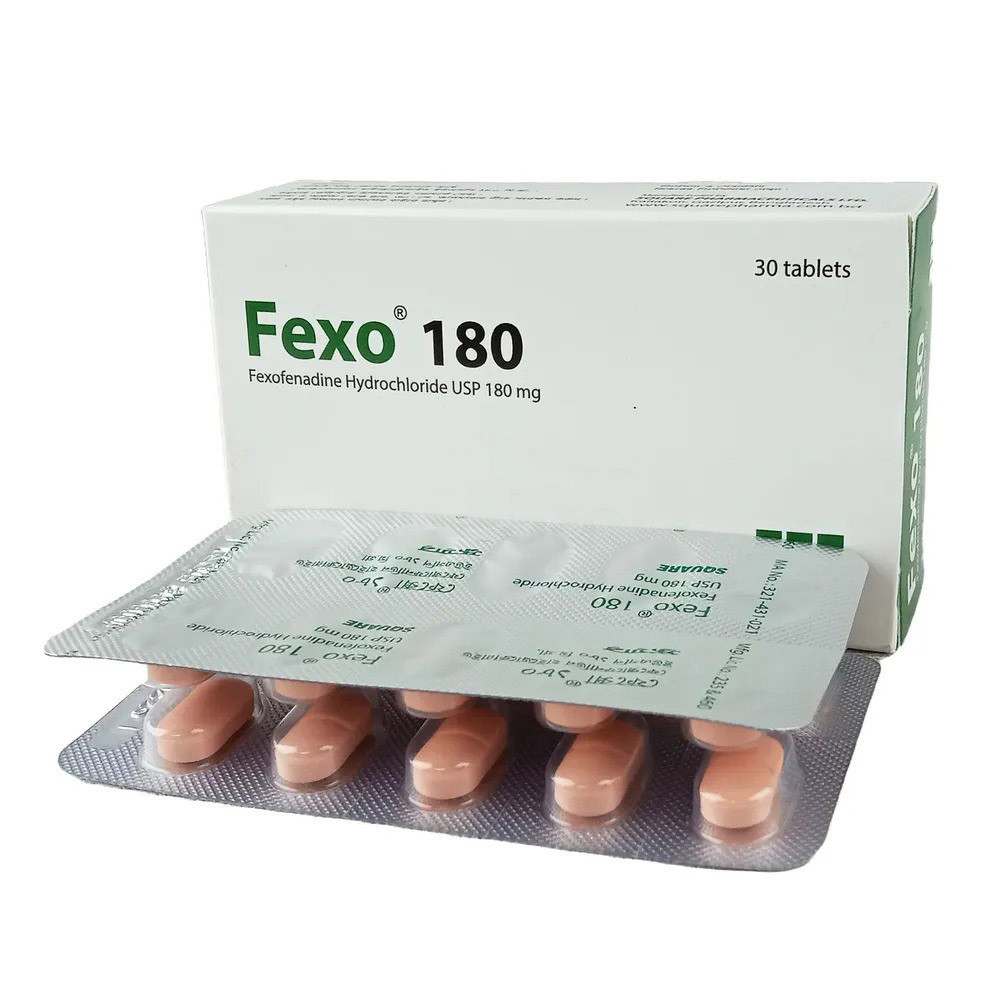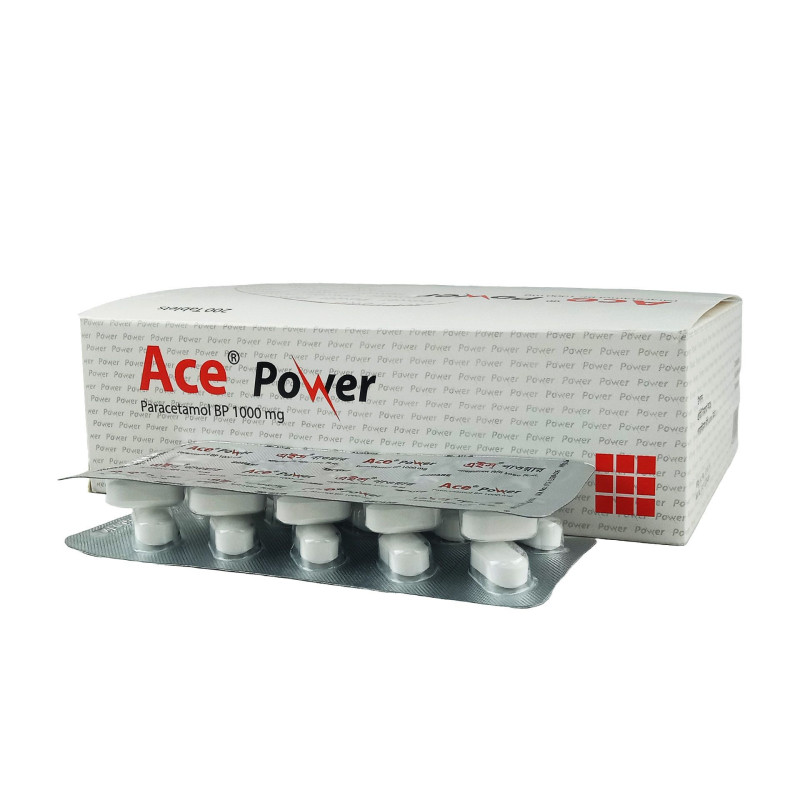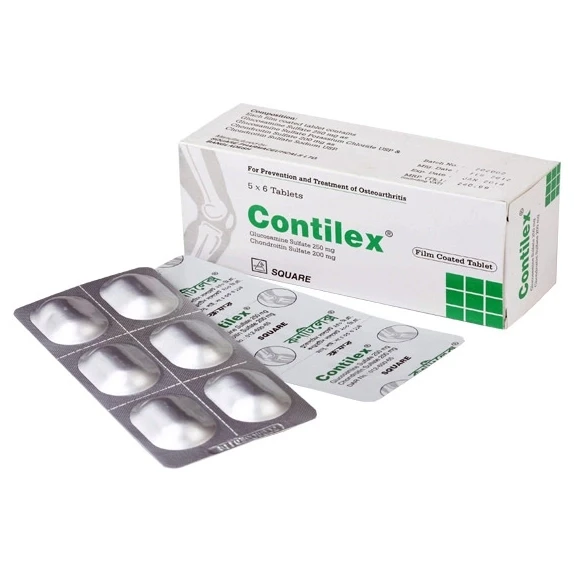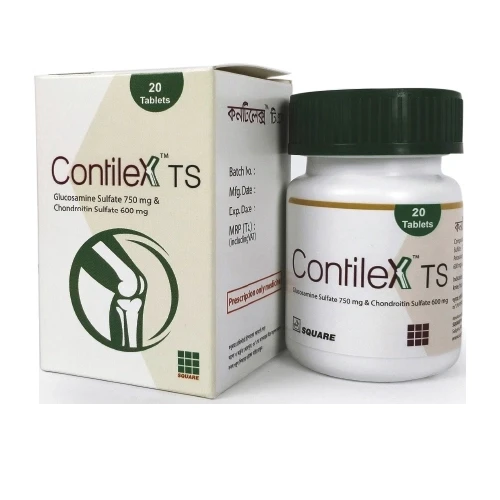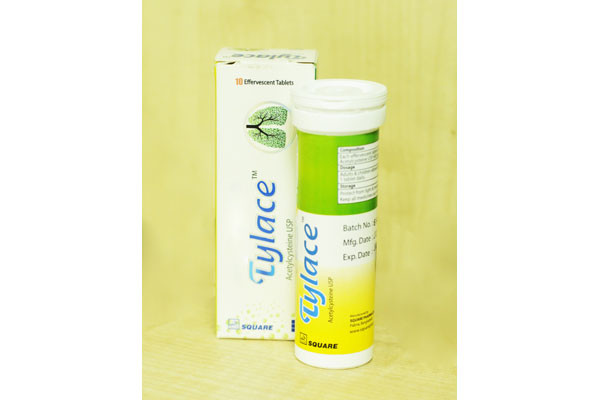

Alanil Tablet, Fexofenadine Hydrochloride 120 mg
Inhouse product
-
৳11.40
৳12.00 -
৳42.75
৳45.00 -
৳16.63
৳17.50 -
৳2.14
৳2.25
Reviews & Ratings
Indications
Allergic rhinitis: Alanil is indicated for the relief of
symptoms associated with seasonal and perennial allergic rhinitis, in adults
and children 12 years of age and over. Symptoms treated effectively include
sneezing, rhinorrhea, lacrimation, itchy, red eyes and itchy
nose/palate/throat. Alanil improves health-related quality of life and
work/activity productivity.
Chronic idiopathic
urticaria: Alanil is indicated
for the relief of symptoms associated with chronic idiopathic urticaria in
adults and children 12 years of age and older. Alanil significantly reduces the
signs and symptoms of chronic idiopathic urticaria, the number of wheals, and
pruritus. Alanil improves health-related quality of life and work/activity
productivity.
* রেজিস্টার্ড চিকিৎসকের পরামর্শ মোতাবেক ঔষধ সেবন করুন'
Pharmacology
The H1 histamine
receptor is responsible for mediating hypersensitivity and allergic reactions.
Exposure to allergen results in the degranulation of mast cells and basophils,
which then release histamine and other inflammatory mediators. Histamine binds to,
and activates, H1 receptors, which results in the further release of
pro-inflammatory cytokines, such as interleukins, from basophils and mast
cells. These downstream effects of histamine binding are responsible for a wide
variety of allergic symptoms, such as pruritus, rhinorrhea, and watery eyes.
Fexofenadine is considered an "inverse agonist" of the H1 receptor
because it binds to and stabilizes the inactive form of the receptor,
preventing its activation and subsequent downstream effects. It has a potent
and selective affinity for H1 receptors, and there is no evidence that it
carries antidopaminergic, antiserotonergic, anticholinergic, sedative, or
adrenergic blocking activity. Fexofenadine does not cross the blood-brain
barrier and thus is unlikely to cause significant CNS effects.
Dosage &
Administration
Allergic
Rhinitis-
Adults and children 12 years and older:
- Tablet: 60 mg twice daily or
120 mg once daily or 180 mg once daily
- In case of impaired renal
function: 60 mg once daily
Children from 6 to 11
years:
- Tablet: 30 mg twice daily or 60
mg once daily
- In case of impaired renal
function: 30 mg once daily
Children from 2 to 11
years
- Suspension: 30 mg or 5
ml twice daily
- In case of impaired renal
function: 30 mg or 5 ml once daily
Chronic Idiopathic
Urticaria-
Adults and children 12
years and older:
- Tablet: 60 mg twice daily or
120 mg once daily or 180 mg once daily
- In case of impaired renal
function: 60 mg once daily
Children from 6 to 11
years:
- Tablet: 30 mg twice daily or 60
mg once daily
- In case of impaired renal
function: 30 mg once daily
Children from 6 months
to less than 2 years:
- Suspension: 15 mg or 2.5 ml
(1/2 tsp) twice daily
- In case of impaired renal
function: 15 mg or 2.5 ml (1/2 tsp) once daily
Children from 2 to 11
years:
- Suspension: 30 mg or 5 ml (1
tsp) twice daily
- In case of impaired renal
function: 30 mg or 5 ml (1 tsp) once daily
* রেজিস্টার্ড চিকিৎসকের পরামর্শ মোতাবেক ঔষধ সেবন করুন'
Interaction
Alanil does not
undergo hepatic biotransformation and therefore will not interact with other
medicinal products through hepatic mechanisms. Coadministration of Alanil with
erythromycin or ketoconazole has been found to result in a 2-3 times increase
in the level of fexofenadine in plasma. The changes were not accompanied by any
effects on the QT interval and were not associated with any increase in adverse
reactions compared to the medicinal products given singly. No interaction
between fexofenadine and omeprazole was observed. However, the administration
of an antacid containing aluminium and magnesium hydroxide gels 15 minutes
prior to Alanil caused a reduction in bioavailability, most likely due to
binding in the gastrointestinal tract. It is advisable to leave 2 hours between
administration of Alanil and aluminium and magnesium hydroxide containing
antacids.
Contraindications
Contraindicated in
patients with known hypersensitivity to Fexofenadine Hydrochloride or any of
its ingredients.
Side Effects
The following
frequency rating has been used, when applicable: Very common ≥1/10; Common
≥1/100 and <1/10; Uncommon ≥1/1,000 and <1/100; Rare ≥1/10,000 and
<1/1,000; Very rare <1/10,000 and not known (frequency cannot be
estimated from the available data). Within each frequency grouping, undesirable
effects are presented in order of decreasing seriousness. In adults, the
following undesirable effects have been reported in clinical trials, with an
incidence similar to that observed with placebo: Nervous system disorders-
Common: headache, drowsiness, dizziness; Gastrointestinal disorders- Common:
nausea; General disorders and administration site conditions- Uncommon:
fatigue. In adults, the following undesirable effects have been reported in
post-marketing surveillance. The frequency with which they occur is not known
(cannot be estimated from available data): Immune system disorders-
hypersensitivity reactions with manifestations such as angioedema, chest
tightness, dyspnoea, flushing and systemic anaphylaxis; Psychiatric disorders-
insomnia, nervousness, sleep disorders or nightmares/excessive dreaming
(paroniria); Cardiac disorders- tachycardia, palpitations; Gastrointestinal
disorders- diarrhea; Skin and subcutaneous tissue disorders- rash, urticaria,
pruritus
Pregnancy &
Lactation
There are no adequate
data from the use of Fexofenadine hydrochloride in pregnant women. Limited
animal studies do not indicate direct or indirect harmful effects with respect
to effects on pregnancy, embryonal/foetal development, parturition or postnatal
development. Fexofenadine hydrochloride should not be used during pregnancy
unless clearly necessary.
There are no data on the content of human milk after administering Fexofenadine
hydrochloride. However, when Terfenadine was administered to nursing mothers
Fexofenadine was found to cross into human breast milk. Therefore, Fexofenadine
hydrochloride is not recommended for mothers breast-feeding their babies. No
human data on the effect of Fexofenadine hydrochloride on fertility are available.
In mice, there was no effect on fertility with Fexofenadine hydrochloride
treatment.
Precautions &
Warnings
As with most new
medicinal products there is only limited data in the older people and renally
or hepatically impaired patients. Alanil should be administered with care in
these special groups. Patients with a history of or ongoing cardiovascular
disease should be warned that, antihistamines as a medicine class, have been
associated with the adverse reactions, tachycardia and palpitations.
Effects on ability to drive and use machines: On the basis of the
pharmacodynamic profile and reported adverse reactions it is unlikely that
Alanil tablets will produce an effect on the ability to drive or use machines.
In objective tests, Alanil has been shown to have no significant effects on
central nervous system function. This means that patients may drive or perform
tasks that require concentration. However, in order to identify sensitive
people who have an unusual reaction to medicinal products, it is advisable to
check the individual response before driving or performing complicated tasks.
Use in Special
Populations
Renal and hepatic
impaired patient: The pharmacokinetics
of fexofenadine are altered in individuals with renal impairment. Based on
increases in bioavailability and half-life, a dose of 60 mg once daily is
recommended as the starting dose in patients with decreased renal function.
Moderate to severe hepatic disease does not affect the pharmacokinetics of
fexofenadine substantially.
Elderly patient: Adverse events were similar in this group
compared to patients under 65 years of age. Nevertheless, the pharmacokinetics
of fexofenadine is altered (increased bioavailability) in individuals over 65
years of age.
Overdose Effects
Dizziness, drowsiness,
fatigue and dry mouth have been reported with overdose of Alanil. Single doses
up to 800 mg and doses up to 690 mg twice daily for 1 month or 240 mg once
daily for 1 year have been administered to healthy subjects without the
development of clinically significant adverse reactions as compared with
placebo. The maximum tolerated dose of Alanil has not been established.
Standard measures should be considered to remove any unabsorbed medicinal
product. Symptomatic and supportive treatment is recommended. Haemodialysis
does not effectively remove Alanil from blood.
Therapeutic Class
Non-sedating
antihistamines
Storage Conditions
Keep in a dry place
away from light and heat. Keep out of the reach of children.
Chemical Structure
|
Molecular Formula : |
C32H39NO4 |
|
Chemical Structure : |
|
Common Questions about Alanil 120 mg Tablet
What is Alanil 120 mg Tablet?
Alanil 120 mg Tablet is an antihistamine. It
works by blocking histamine that the body makes during an allergic reaction.
What are the uses of Alanil 120 mg Tablet?
Alanil 120 mg Tablet is used for the treatment
of allergic rhinitis and urticaria. It relieves allergy symptoms such as runny
nose, itching eyes/nose, sneezing, hives, and itching.
What are the Side Effects of Alanil 120 mg
Tablet?
Alanil 120 mg Tablet has some reported side
effects such as Vomiting, Headache, Coughing, Diarrhea, Painful menstruation,
Pain in the arms and legs, Hives and redness of skin, Swelling of face, lips,
eyelids, tongue, hands and feet.
What are the instructions for storage and
disposal Alanil 120 mg Tablet?
Alanil 120 mg Tablet should be kept in a cool
dry place and in its original pack. Make sure this medication remains
unreachable to children and pets.
Can Alanil 120 mg Tablet make you sleepy?
Yes, Alanil 120 mg Tablet can make you feel
sleepy, infect sleepiness is a common side effect of this medicine.
Can you overdose on Alanil 120 mg Tablet?
Do not take an overdose of Alanil 120 mg
Tablet as this can cause adverse reactions and may increase the risk of side
effects like dizziness, drowsiness, fatigue, and dry mouth.
How quickly does Alanil 120 mg Tablet work?
Alanil 120 mg Tablet starts working within 1
hour of consuming it. The peak benefit of Alanil 120 mg Tablet is observed
within 6 hours.
Does Alanil 120 mg Tablet relieve symptoms of
outdoor and indoor allergies?
Yes, Alanil 120 mg Tablet can help relieve
symptoms that may be caused by outdoor and indoor allergens such as upper
respiratory allergies, hay fever, watery eyes, runny nose, and sneezing, or
itching of the nose or throat.
How to cope with dizziness caused by Alanil
120 mg Tablet?
Take some rest after taking Alanil 120 mg
Tablet if you feel dizzy or sleep. Do not use heavy machinery or drive and move
very slowly. Exercise caution and if there is extreme dizziness, then consult a
doctor as soon as possible.
Can I take antacids while taking Alanil 120 mg
Tablet?
Alanil 120 mg Tablet should not be used in
combination with antacids as the interaction between them can result in a
decreased absorption of Alanil 120 mg Tablet.
How should I take Alanil 120 mg Tablet?
Alanil 120 mg Tablet should be taken in dose
and duration as recommended by the doctor. Do not take an overdose as this can
affect your health adversely.
Is there any food or drink that I need to
avoid while taking Alanil 120 mg Tablet?
Do not consume juices like grapefruit juice,
orange juice and apple juice if you are on the course of medication with Alanil
120 mg Tablet.
Can Alanil 120 mg Tablet cause heart problems?
Those who suffer from heart disorders should
exercise caution and must look out for some other alternative of this medicine.
Quick Tips
- Alanil 120 mg Tablet is an
antihistaminic medication. It treats allergy symptoms such as itching,
swelling, and rashes by blocking the effects of a chemical messenger
(histamine) in the body.
- Alanil 120 mg Tablet is less
likely to make you feel sleepy than some other similar medicines.
- Do not take Alanil 120 mg
Tablet with any fruit juices (such as apple, orange, or grapefruit) as
they might make the drug less effective.
- Alanil 120 mg Tablet may cause
nausea. Stick to simple meals, and do not eat rich or spicy food.
- Avoid using antacids 30 minutes
before or after taking Alanil 120 mg Tablet. It can make it harder for
your body to absorb this medication.
* রেজিস্টার্ড চিকিৎসকের পরামর্শ মোতাবেক ঔষধ সেবন করুন'
Frequently Bought Products
Linaptin Tablet, Linagliptin 5 mg
Rosugen Tablet, Rosuvastatin Calcium 10 mg
Pentadol Tablet Tapentadol Hydrochloride 50 mg
Fluzin Tablet (10 tablet Strip), Flunarizine 5 mg
Tylace Effervescent Tablet, Acetylcysteine 600 mg
Natagen Ophthalmic Suspension 5 ml drop, Natamycin 5%
Fulspec IV Injection or Infusion 1 gm Vial, Meropenem Trihydrate 1 gm/vial
Virux-HC Cream 10 gm, Acyclovir + Hydrocortisone 5%+1%
Fluconal Tablet, Fluconazole 50 mg
Product Queries (0)
Login Or Registerto submit your questions to seller
Other Questions
No none asked to seller yet
-
৳11.40
৳12.00 -
৳42.75
৳45.00 -
৳16.63
৳17.50 -
৳2.14
৳2.25
